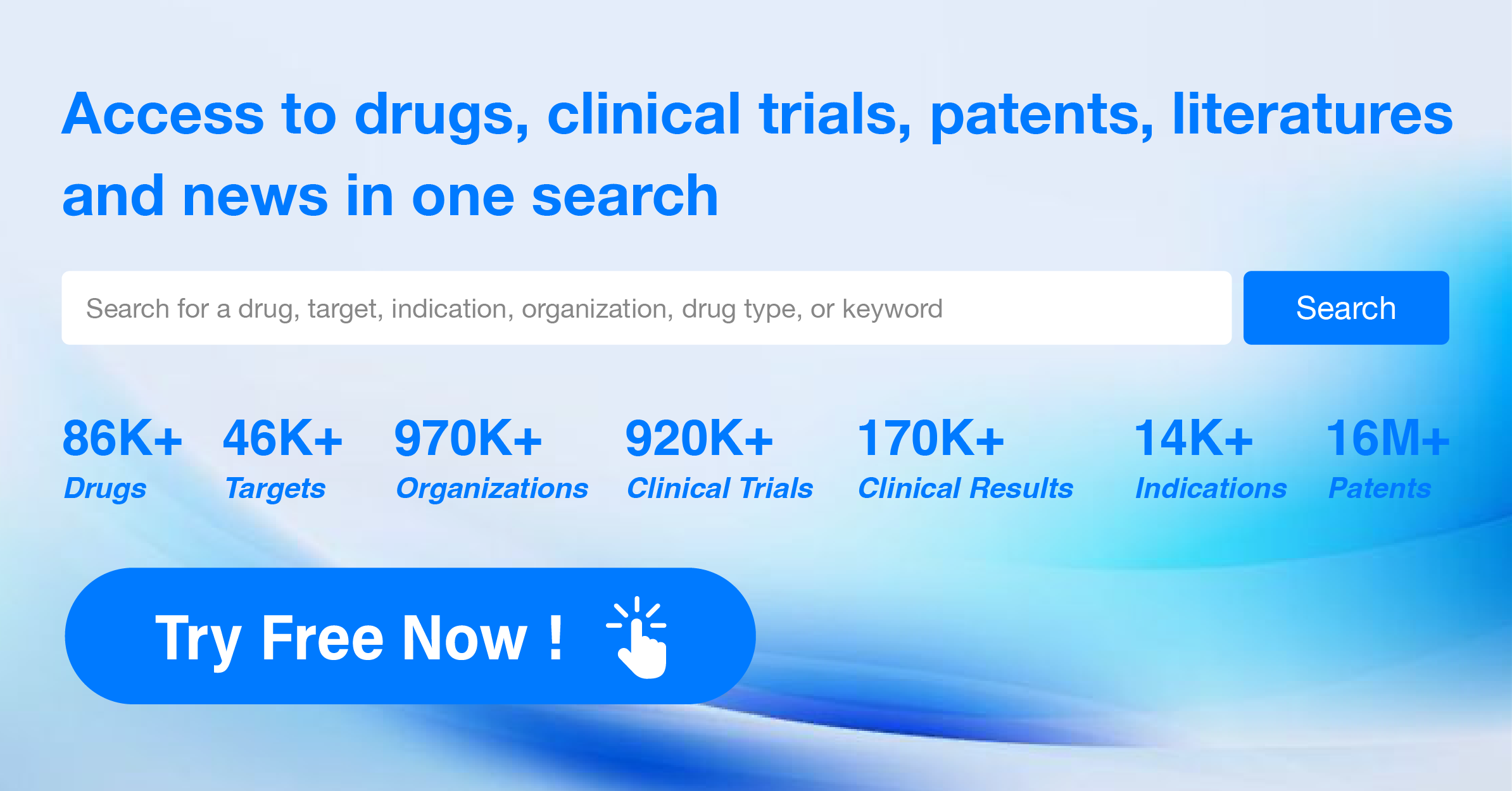Pharma Frontiers: Daily Digest of Global Pharmaceutical News - May 23
1.Roche's Small Molecule Combination Therapy Receives FDA Breakthrough Therapy Designation
On May 22, Roche announced that the U.S. FDA has granted Breakthrough Therapy Designation (BTD) to its investigational oral small molecule inavolisib in combination with the CDK4/6 inhibitor Ibrance (palbociclib) and fulvestrant. This designation is for the treatment of adult patients with HR-positive, HER2-negative, locally advanced or metastatic breast cancer harboring PIK3CA mutations who experience disease recurrence within 12 months after completion of adjuvant endocrine therapy. HR-positive breast cancer is the most common type of breast cancer, accounting for approximately 70% of cases. HR-positive breast cancer refers to those tumors that express estrogen receptors (ER) and/or progesterone receptors (PR), which can drive tumor growth. Patients diagnosed with HR-positive metastatic breast cancer often face the risk of disease progression and treatment-related side effects, thus necessitating additional therapeutic options. The PI3K signaling pathway is frequently dysregulated in HR-positive breast cancer, often due to activating mutations in PIK3CA, which has been identified as a potential mechanism of resistance to standard endocrine therapy combined with CDK4/6 inhibitors. Inavolisib is an oral therapy with highly potent and selective inhibition of PI3Kα in vitro, capable of specifically targeting the degradation of PI3Kα protein mutants. Through this unique dual-action mechanism, inavolisib holds the potential to provide well-tolerated, durable disease control and potentially improved outcomes for patients with HR-positive/HER2-negative, PIK3CA-mutant advanced breast cancer.
2.GSK's Ultra-Long-Acting Therapy Depemokimab Achieves Primary Endpoint in Phase 3 Trial
On May 22, GSK announced positive results from its two pivotal Phase 3 clinical trials, SWIFT-1 and SWIFT-2. Analysis indicated that GSK's investigational monoclonal antibody depemokimab achieved the primary endpoint in both trials, effectively reducing the frequency of asthma exacerbations in adult and adolescent patients with severe asthma characterized by Type 2 inflammation, marked by elevated blood eosinophil counts. According to the press release, depemokimab could become the first approved ultra-long-acting biologic requiring administration only once every six months for the treatment of severe asthma. Severe asthma is defined as asthma that requires high-dose inhaled corticosteroids plus a second controller (and/or systemic corticosteroids) or biologics to prevent it from becoming "uncontrolled," or remains "uncontrolled" despite treatment.
SWIFT-1 and SWIFT-2 are two identically designed randomized, double-blind, placebo-controlled, parallel-group, multicenter Phase 3 clinical trials, with 375 and 380 patients enrolled, respectively, over a 52-week period. Analyses showed that both SWIFT-1 and SWIFT-2 achieved their primary endpoint, demonstrating a statistically significant reduction in the annualized rate of clinically significant exacerbations (asthma attacks) compared to placebo over 52 weeks. In both trials, the overall incidence and severity of adverse events associated with the treatment were similar between patients receiving depemokimab and those receiving placebo.
According to the press release, depemokimab is the first ultra-long-acting biologic targeting interleukin-5 (IL-5) evaluated in Phase 3 trials. Depemokimab binds to IL-5 with high affinity and is administered once every six months for the treatment of severe asthma. IL-5 is a key cytokine in Type 2 inflammation. Over 80% of severe asthma cases are driven by Type 2 inflammation, characterized by elevated eosinophil levels, making the disease's progression unpredictable.
3.DURECT Announces Upcoming Phase 3 Clinical Trial for Breakthrough Therapy Larsucosterol
On May 22, DURECT Corporation announced that the U.S. FDA has granted Breakthrough Therapy Designation (BTD) for its investigational therapy larsucosterol, intended for the treatment of severe alcohol-associated hepatitis (AH) patients. DURECT is planning to initiate a registrational Phase 3 clinical trial to confirm the efficacy and safety of larsucosterol. The BTD was primarily supported by positive data from the AHFIRM Phase 2b clinical trial. AHFIRM is a randomized, double-blind, placebo-controlled international multicenter study designed to evaluate the safety and efficacy of larsucosterol in treating severe alcohol-associated hepatitis (AH) patients. The study enrolled a total of 307 patients, divided into three cohorts of approximately 100 patients each: (1) Placebo, including standard of care (SOC), where investigators could use methylprednisolone capsules at their discretion; (2) 30 mg larsucosterol; and (3) 90 mg larsucosterol.
Results announced last November revealed that analyses focusing on U.S. patients (comprising 76% of the cohort) indicated that both doses of larsucosterol significantly reduced patient mortality. Compared to SOC, the 30 mg group showed a 57% reduction in 90-day mortality (p=0.014), and the 90 mg group showed a 58% reduction in 90-day mortality (p=0.008). Larsucosterol demonstrated a favorable safety and tolerability profile. Treatment-emergent adverse events (TEAEs) were less frequent in the larsucosterol groups compared to SOC.
Larsucosterol is an endogenous sulfated oxysterol and an epigenetic modulator. It acts as an inhibitor of DNA methyltransferases (DNMT1, DNMT3a, and DNMT3b), which can regulate gene expression related to stress response, cell death, and survival, as well as lipid biosynthesis pathways, by inhibiting DNA methylation. This may ultimately lead to increased cell survival, reduced inflammation, and lower lipotoxicity.
4.Hengrui Pharmaceuticals' SHR-A1921 Proposed for Breakthrough Therapy Designation for Ovarian Cancer
On May 21, the official website of the Center for Drug Evaluation (CDE) of China’s National Medical Products Administration (NMPA) announced that Hengrui Pharmaceuticals’ (Hengrui Pharmaceuticals) injection SHR-A1921 is proposed for inclusion as a breakthrough therapy designation for the indication of platinum-resistant recurrent epithelial ovarian cancer, fallopian tube cancer, or primary peritoneal cancer. According to publicly available information from Hengrui Pharmaceuticals, this is a self-developed antibody-drug conjugate (ADC) targeting TROP-2. Previously, this drug has been granted Fast Track designation by the US FDA for the treatment of platinum-resistant recurrent epithelial ovarian cancer.
Ovarian cancer is a common gynecological malignancy that seriously threatens women's health. Among these, epithelial ovarian cancer accounts for approximately 80% of ovarian malignancies. The current standard treatment involves surgery combined with platinum-based chemotherapy, but at least 70% of advanced-stage patients will relapse within three years and eventually develop resistance to platinum-based chemotherapy. Clinical treatment options and efficacy for platinum-resistant recurrent ovarian cancer are very limited, with a median survival time of only about 12 to 15 months. There is a significant unmet clinical need in this patient population, urgently requiring more effective treatment methods.
TROP-2 is a widely expressed glycoprotein antigen that promotes tumor cell proliferation, invasion, and metastasis. Its high expression is closely associated with shorter survival times and poor prognosis in tumor patients. TROP-2 is significantly more expressed in various epithelial-derived tumor tissues than in normal tissues, with approximately 90% of epithelial ovarian cancer patients expressing TROP-2, and approximately 60% overexpressing it. Therefore, developing drugs targeting TROP-2 provides a new option for treating ovarian cancer.
According to information disclosed by Hengrui Pharmaceuticals, injection SHR-A1921 can specifically bind to tumor cells that express TROP-2. After being endocytosed by the tumor cells, it releases small-molecule toxins in the lysosomes, thereby inducing tumor cell apoptosis. Additionally, SHR-A1921 exhibits a notable bystander effect, effectively killing TROP-2 negative tumor cells adjacent to the target cells.
5.Ractigen Therapeutics' Small Activating RNA Drug RAG-01 Granted FDA Fast Track Designation
On May 21, Ractigen Therapeutics announced that its independently developed small activating RNA (saRNA) drug, RAG-01, has been granted Fast Track designation by the U.S. FDA for the treatment of Bacillus Calmette-Guérin (BCG)-unresponsive non-muscle invasive bladder cancer (NMIBC). Bladder cancer is a common urinary system cancer, with NMIBC accounting for 50% to 80% of cases. The standard treatment for NMIBC is transurethral resection of bladder tumor (TURBT), but the postoperative recurrence rate is high. Therefore, there is an urgent need to develop drugs that effectively prevent bladder cancer recurrence and treat advanced bladder cancer. RNA activation (RNAa) technology uses double-stranded RNA targeting gene promoter regions to activate gene expression, thereby restoring therapeutic protein levels. RNA activation technology has broad application prospects in developing therapeutic drugs, including for tumors, genetic diseases, chronic diseases, metabolic diseases, and cardiovascular diseases.
RAG-01 is a double-stranded saRNA drug specifically targeting the activation of the tumor suppressor gene p21. It activates p21 gene expression via the RNAa mechanism, suppressing tumor cell proliferation, inducing apoptosis and cell senescence. Preclinical efficacy studies have shown that treatment with RAG-01, delivered through Ractigen's proprietary oligonucleotide delivery system, can significantly inhibit tumor growth in bladder cancer animal models and demonstrate substantial safety. Previously, RAG-01's IND application for treating NMIBC had been approved by the FDA, and a Phase 1 clinical trial has been initiated in Australia, with three participants already enrolled and dosed.
6.Medilink Therapeutics' ADC New Drug Injection YL205 Approved for Clinical Trials
On May 21st, the official website of the Center for Drug Evaluation (CDE) under the China National Medical Products Administration (NMPA) announced that Medilink Therapeutics' application for the clinical trial of the Class 1 new drug, YL205, has been granted implicit approval. The drug is being developed for the treatment of advanced solid tumors. According to publicly available data from Medilink Therapeutics, YL205 is a next-generation antibody-drug conjugate (ADC) specifically targeting NaPi2b, utilizing a novel topoisomerase I inhibitor as its payload. NaPi2b, encoded by the SLC34A2 gene, is one of three members of the SLC34 family of type II sodium-dependent phosphate transporters. The SLC34 family plays a crucial role in maintaining systemic phosphate homeostasis by transporting phosphate across epithelial membranes. NaPi2b is a cell surface sodium-dependent phosphate transporter. Preclinical and early clinical studies have indicated that NaPi2b is expressed in high-grade serous epithelial ovarian cancer, fallopian tube cancer, primary peritoneal cancer, as well as thyroid cancer, breast cancer, and non-squamous non-small cell lung cancer (NSCLC), while showing limited expression in normal tissues. This makes NaPi2b a promising target for the treatment of cancers such as ovarian cancer.
At the 2024 American Association for Cancer Research (AACR) Annual Meeting, Medilink Therapeutics disclosed the preclinical study results for YL205. The study evaluated the drug characteristics, efficacy, safety, and pharmacokinetic (PK) profile of YL205. The data showed that YL205 exhibits significant dose-dependent anti-tumor activity in NaPi2b low to high expressing ovarian cancer and NSCLC xenograft mouse models, including complete tumor regression with no apparent toxicity. In studies conducted on SD rats and cynomolgus monkeys, YL205 demonstrated favorable PK properties. Across all tested doses, no drug-related adverse outcomes were observed in the lungs, liver, or kidneys.
7.Oral GLP-1R Agonist BPYT-01 Approved for Clinical Trials
On May 21, the website of the Chinese National Medical Products Administration's Center for Drug Evaluation (CDE) announced that the Category 1 new drug BPYT-01 capsules, submitted by Baiji Youtang, have been granted implied consent for clinical trials, with a proposed use for overweight and obesity treatment. Public information indicates that BPYT-01 is an oral small-molecule GLP-1 secretagogue. Previously, its clinical trial application for type 2 diabetes was approved by the CDE, and the first dose enrollment for the Phase 1 clinical study has been completed. BPYT-01 is a small-molecule GLP-1 secretagogue developed through synthetic processes in collaboration between the Shanghai Institute of Materia Medica, Chinese Academy of Sciences, Xishuangbanna Tropical Botanical Garden, and Baiji Youtang, based on active chemical monomers discovered during the development of medicinal plant resources.
Preclinical studies have shown that, following oral administration, BPYT-01 selectively distributes in intestinal tissues and directly promotes GLP-1 secretion from intestinal L-cells through a novel mechanism, enhancing endogenous GLP-1 levels. This results in effects similar to those of peptide-based GLP-1 receptor agonists, such as suppression of the satiety center, reduced food intake, weight loss, improvement of hyperglycemic symptoms, and protection of impaired pancreatic β-cells. In preclinical studies, this product significantly improved hyperglycemic conditions in type 2 diabetic mice and protected the impaired pancreatic β-cells. According to a previous press release from Baiji Youtang, the mechanism of action of oral BPYT-01, its distribution characteristics in intestinal tissues, and its favorable in vivo efficacy and safety profile, provide advantages in terms of medication convenience and patient compliance.
8.Over $1.1 Billion Investment in Radiopharmaceuticals: Eli Lilly Forms Multi-Target Research Collaboration
On May 22, Aktis Oncology announced a multi-target research collaboration agreement with Eli Lilly and Company to develop anticancer radiopharmaceuticals using Aktis Oncology's novel mini-protein technology platform. This collaboration combines Aktis's proprietary radiopharmaceutical platform with Eli Lilly's expertise in oncology drug development and commercialization, aiming to develop potentially "first-in-class" differentiated therapies for various solid tumors. Aktis is dedicated to developing alpha-particle radiopharmaceuticals based on its unique mini-protein ligands, with seven projects currently in its pipeline, including a nectin-4 targeting project that has entered clinical development. The alpha-particle-designed tumor-targeting radiopharmaceuticals can selectively bind to tumor cells and deeply penetrate tumors, while they can quickly clear from other parts of the body, minimizing damage to healthy tissues. Under the terms of the agreement, Aktis will receive a $60 million upfront payment and an equity investment from Eli Lilly. Additionally, Aktis is eligible to receive up to $1.1 billion in potential preclinical, clinical, regulatory, and commercial milestone payments. Eli Lilly will have the global rights to develop radiopharmaceutical and diagnostic products discovered by Aktis targeting a set of targets selected by Eli Lilly.
9.Sanofi, Formation Bio, and OpenAI Form AI-Driven Drug Development Partnership
On May 22, Sanofi announced a collaboration with Formation Bio and OpenAI to develop AI-driven software aimed at accelerating drug development and more efficiently delivering innovative medicines to patients. This unique partnership will integrate data, software, and custom models to create tailored solutions across various stages of the drug development lifecycle. As one of the world's leading AI technology companies, OpenAI will provide advanced AI capabilities, including model fine-tuning and deep AI expertise. Formation Bio, an AI and technology-driven drug development company with its own drug pipeline, will contribute extensive engineering resources, operational experience at the intersection of pharma and AI, and its tech-driven development platform to design, develop, and deploy AI technologies covering all aspects of the drug development lifecycle. Through this collaboration, Sanofi will leverage its proprietary data to develop AI models. Sanofi further noted that the three companies will focus on customizing large language models specifically designed for drug development.




